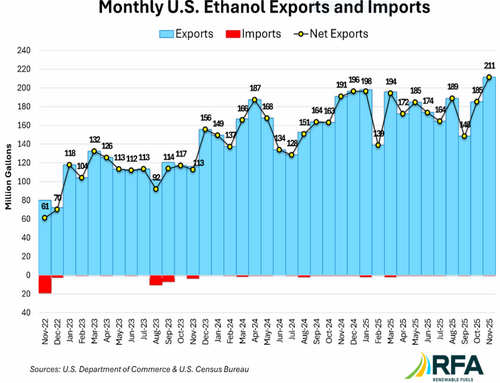Source: USDA news release
Lebanon, TN – Yesterday, U.S. Secretary of Agriculture Brooke L. Rollins alongside Tennessee Governor Bill Lee, Senator Marsha Blackburn, Senator Bill Hagerty, Representative John Rose, and U.S. Department of Agriculture (USDA) Deputy Secretary Stephen Vaden, announced USDA will no longer fund taxpayer dollars for solar panels on productive farmland or allow solar panels manufactured by foreign adversaries to be used in USDA projects.
Subsidized solar farms have made it more difficult for farmers to access farmland by making it more expensive and less available. Within the last 30 years, Tennessee alone has lost over 1.2 million acres of farmland and is expected to lose 2 million acres by 2027. This problem is not just in Tennessee, since 2012, solar panels on farmland nationwide have increased by nearly 50%. That is why the Department is taking action.
“Our prime farmland should not be wasted and replaced with green new deal subsidized solar panels. It has been disheartening to see our beautiful farmland displaced by solar projects, especially in rural areas that have strong agricultural heritage. One of the largest barriers of entry for new and young farmers is access to land. Subsidized solar farms have made it more difficult for farmers to access farmland by making it more expensive and less available,” said Secretary Brooke Rollins.
“We are no longer allowing businesses to use your taxpayer dollars to fund solar projects on prime American farmland, and we will no longer allow solar panels manufactured by foreign adversaries to be used in our USDA-funded projects.”
“Tennesseans know that our farmland is our national security, our economic future, and our children’s heritage. We were honored to welcome Secretary Rollins to Tennessee this week, and I’m grateful for her leadership to defend America’s farmland from foreign adversaries and protect our food supply,” said Tennessee Governor Bill Lee.
“Tennessee farmland should be used to grow the crops that feed our state and country, not to house solar panels made by foreign countries like Communist China,” said Senator Blackburn. “Secretary Rollins and President Trump are right to put an end to these Green New Deal subsidies that waste taxpayer dollars while threatening America’s food security. I applaud this administration for investing in rural communities across Tennessee and empowering them to prosper for years to come.”
Protecting American Farmland:
This action will rapidly eliminate the market distortions and costs imposed on taxpayers by reducing energy subsidies and builds upon the repeal of and modifications to wind, solar, and other “green” energy tax credits in the One Big Beautiful Bill Act. It will further USDA’s determination to end taxpayer support for unaffordable and unreliable “green” energy sources and ensure the supply chain consists of American products and manufacturing.
Effective immediately, USDA will implement the following programmatic actions:
For the USDA Rural Development Business and Industry (B&I) Guaranteed Loan Program wind and solar projects are not eligible.
For the USDA Rural Development Rural Energy for America Program Guaranteed Loan Program (REAP Guaranteed Loan Program), USDA will ensure that American farmers, ranchers and producers utilizing wind and solar energy sources will install units that are right-sized for their facilities. If project applications include ground mount solar photovoltaic systems larger than 50kW or ground mount solar photovoltaic systems that cannot document historical energy usage, they will no longer be eligible for the REAP Guaranteed Loan Program, and priority points will no longer be given for REAP grants.
About USDA Rural Development
USDA Rural Development invests in rural America with loan, grant, and loan guarantee programs to promote rural prosperity. The commitment and resources we bring to rural communities help drive economic security and prosperity. Our programs expand access to high-speed internet, electric, and transportation infrastructure, and support business growth, healthcare, education, housing, and other community essentials. Learn more online at www.rd.usda.gov.


